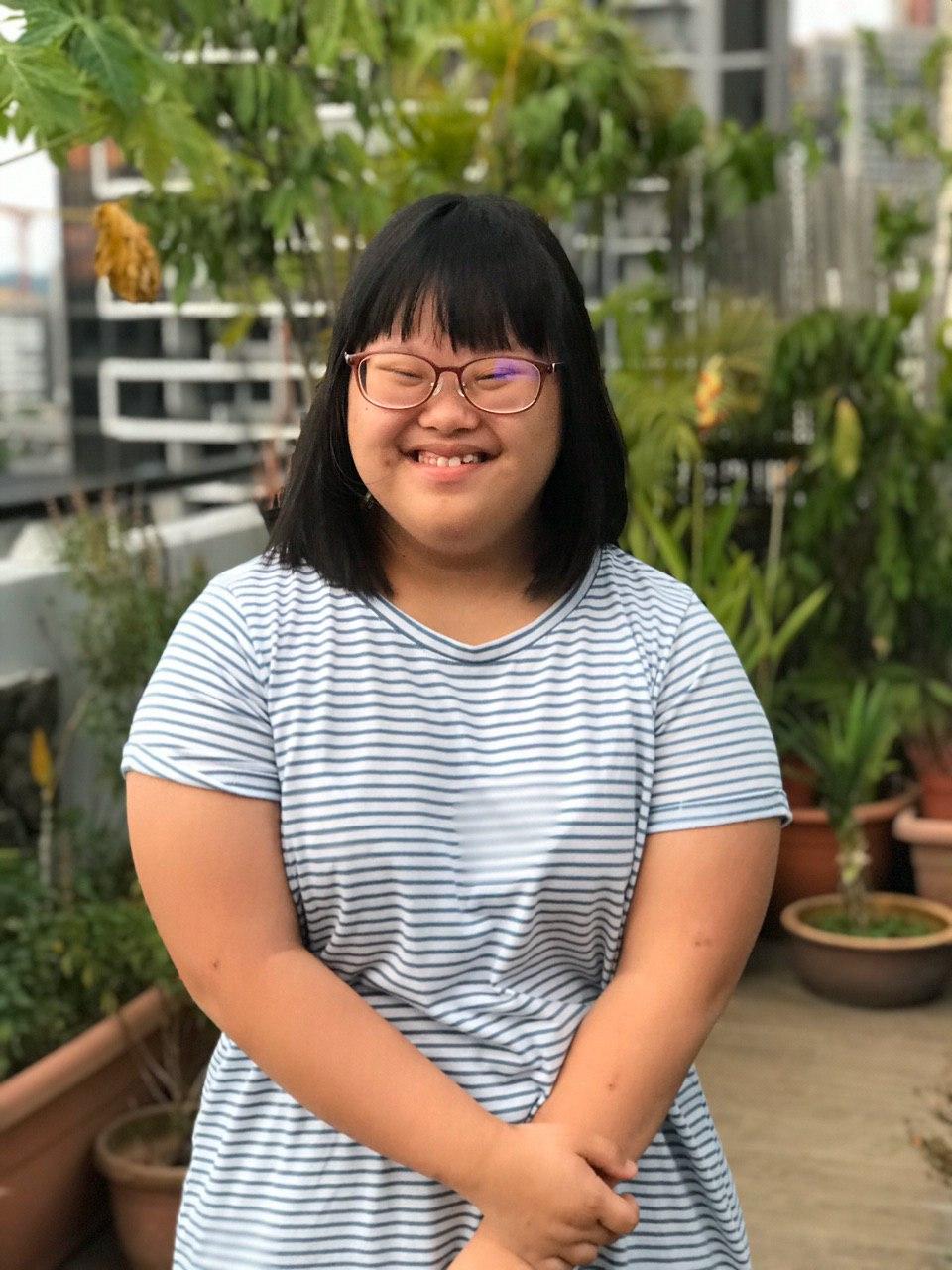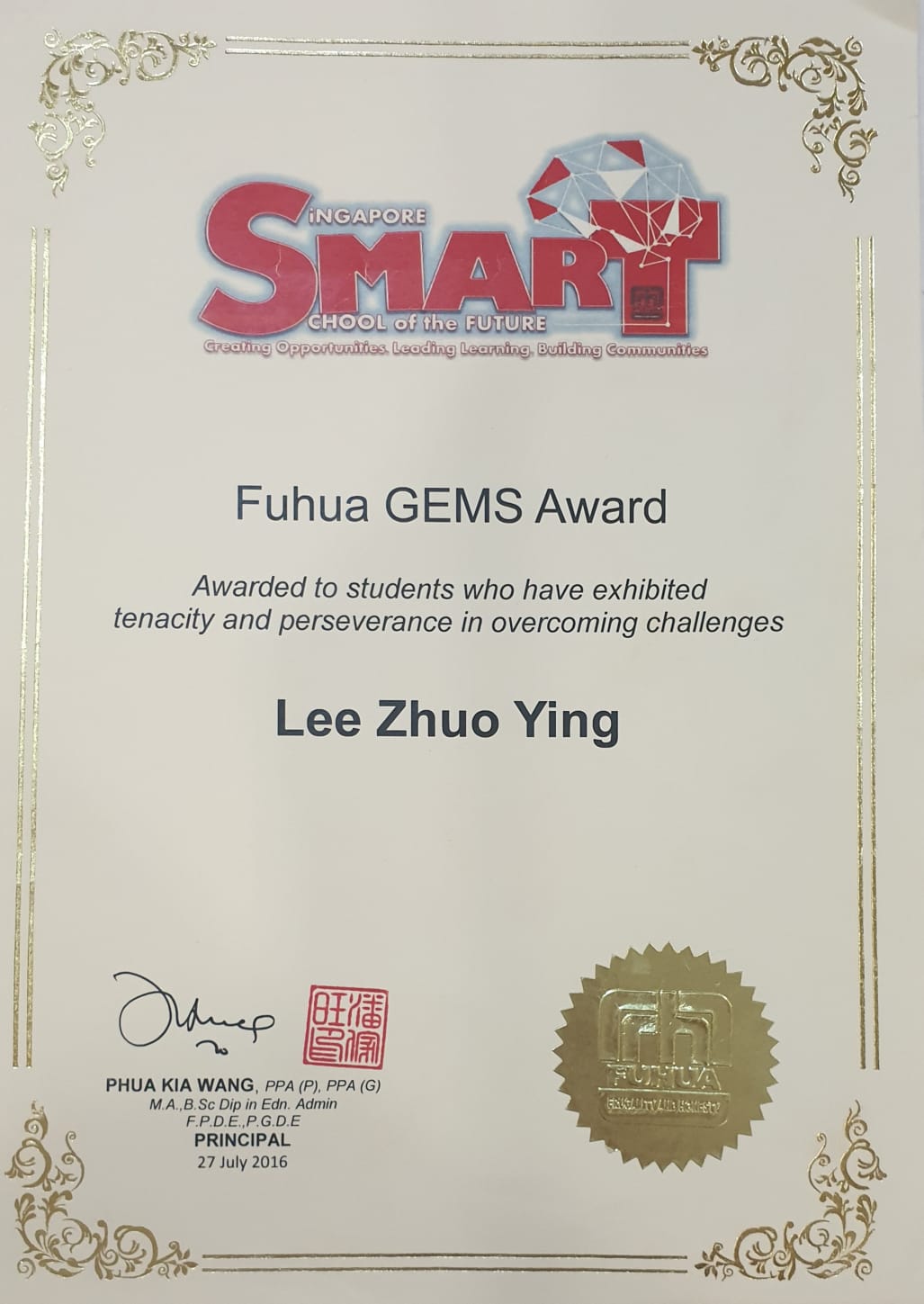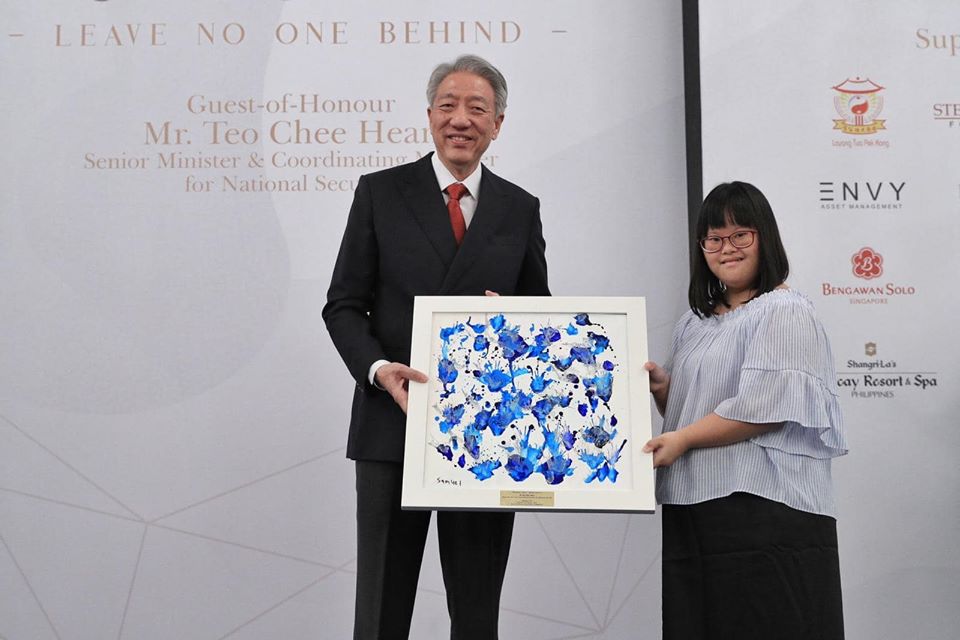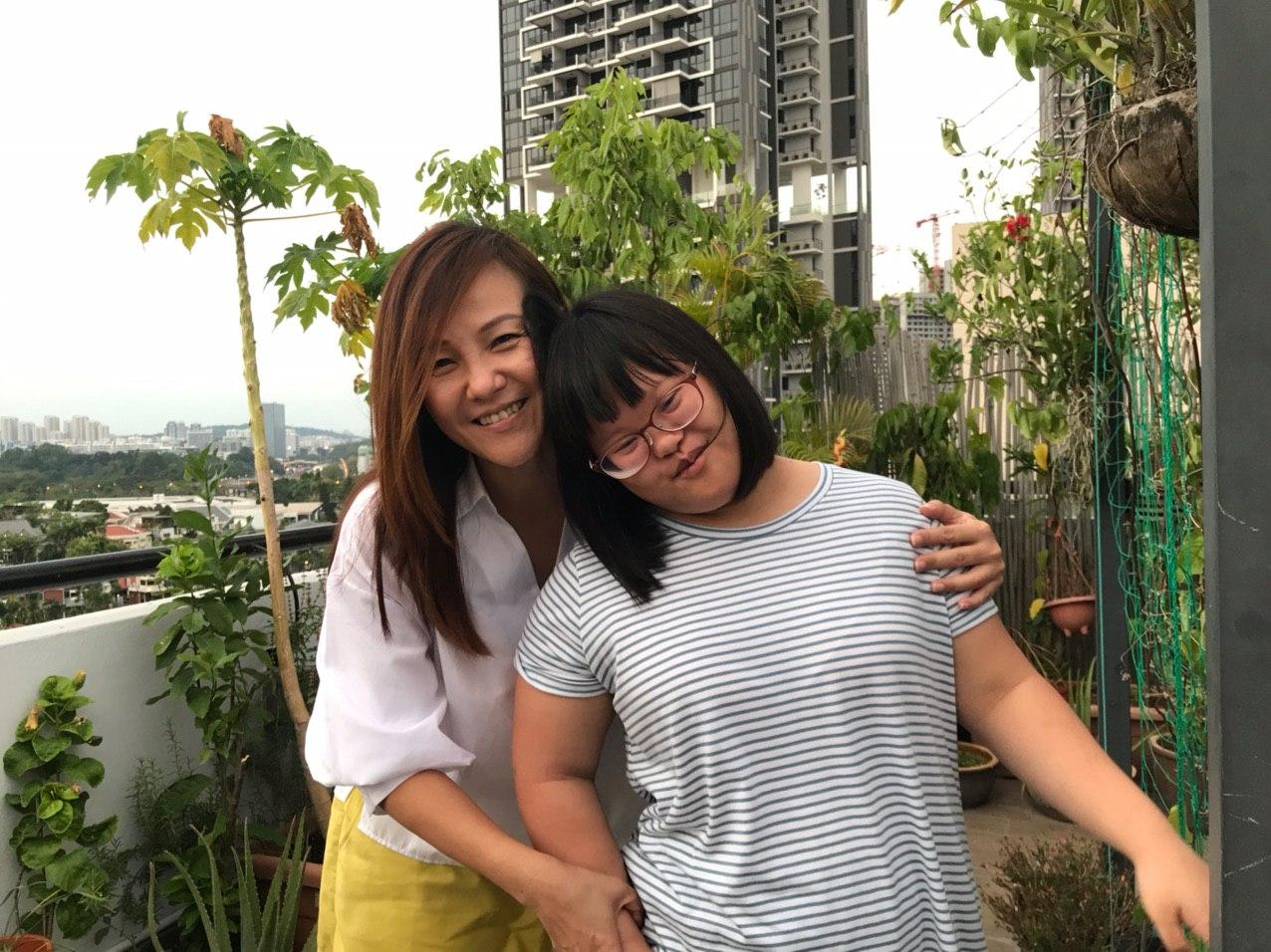Like a lot of 18-year-olds, Lee Zhuo Ying enjoys going to the movies and binge-watching YouTube videos.
She is currently pursuing her tertiary education.
But she is also the one in 700 born with more than 23 pairs of chromosomes.
Lee has Down Syndrome, a condition which is usually associated with physical growth delays, mild to moderate intellectual disability, and characteristic facial features.
 Photo by Fasiha Nazren.
Photo by Fasiha Nazren.
Her mother, Hui Choy Leng, only found out about Lee's condition only after she gave birth.
Recalling the first time she was told the news, she said, "Honestly I blanked (out). The earlier blood tests didn't tell so I wasn't prepared at all."
She was only 31 years old then.
Early intervention since infancy
Upon a friend's suggestion, the mother of two enrolled her youngest child into several programmes at various organisations.
From three months old, Lee attended early intervention programmes at Rainbow Centre and Lee Kong Chian Gardens School.
She was also part of Down Syndrome Association's (DSA) Integration Facilitation Support Programme up until she was 17.
Through these programmes, Lee has learned to adapt to society at large.
Hui told us,
"I hardly remind her that she has Down Syndrome. She is expected to behave like any other children, so she doesn't feel like she's different from other kids. In her world, maybe part of the integration [in school] could blur the line."
Following an intelligence quotient (IQ) assessment when she was six years old, a doctor recommended that she attend a mainstream school.
While most children start primary school at seven, Lee began primary school at eight years old, because her family had opted to delay her primary school registration by a year.
And it wasn't because she wasn't ready to go to school.
On the contrary, it was Hui.
Her mother said, "I don't think it was her, it was me who wasn't ready. I initially didn't prepare her for mainstream schools!"
Many milestones
Achieving one milestone after another, Lee has never felt out of place in school.
When she attended Fuhua Primary School, she received the Fuhua GEMS Award, an award that recognises students' tenacity and perseverance.
 Photo courtesy of Lee Zhuo Ying.
Photo courtesy of Lee Zhuo Ying.
Lee enjoys going to school so much, she would still want to go to school even if she is not feeling well.
While the student was grinning sheepishly, Hui said, "She would refuse to take MC whenever she is sick, so I have no choice but to let her go and let her teacher send her back. She will only listen when the 'authorities' say so."
After passing her her Primary School Leaving Examination (PSLE), Lee went on to Crest Secondary School, a specialised school for Normal (Technical) students.
In secondary school, she completed an internship at Ben & Jerry's as a scooper.
Speaking fondly of her time there, she said that she some of the fun things she did include making waffle cones and serving customers.
Thankfully, she has never encountered difficult customers.
First to take N-Levels
In 2019, she achieved another milestone: She became the first DSA member to take the N-Levels examination.
 Lee and Senior Minister Teo Chee Hean at a DSA event. Photo from Teo Chee Hean's Facebook page.
Lee and Senior Minister Teo Chee Hean at a DSA event. Photo from Teo Chee Hean's Facebook page.
While she did pass her examinations, she couldn't help but sigh while we were talking about it.
Her results didn't qualify for her to enrol into her preferred Western Culinary Arts course at the Institute of Technical Education (ITE) College West.
"I enjoy cooking and baking. My best dish, which is also my favourite food, is fried beancurd and curry rice."
However, she did tell me that she's enjoying herself at her current Retails Services course at the same campus, where she has been learning more about business communications and business essentials.
It takes a village
Getting to where she is hasn't always been easy.
For one, it takes more effort to get Lee to understand academic and logical concepts.
Hui explains,
"Some things may be simpler for us to understand. But for them, it may take more than double the effort. Like for math concepts like division, I have thought to myself: 'Why you don't understand? Division is just division.' It takes repeated attempts and it can get tiring for both of us."
But the key to success is to remain patient.
"The results may not be perfect, but with determination and patience we can get through it."
Hui also believes that family support has been an important factor in raising her child. As a working mother, Lee's aunt has been taking care of her since she was a baby.
"She is like a second mother to her. She instils discipline and routine in Zhuo Ying," Hui said.
Meanwhile, she teaches Lee time management and organisation skills by setting up a timetable for her when she entered primary school.
Working harder
With tertiary education being a different ballgame from primary and secondary school, Lee is taking her studies more seriously than ever.
She tells me that every day after school, she would take a shower and eat dinner before starting on her homework or revision for upcoming tests.
Just like a lot of mugging students, she multitasks and does her assignments while watching YouTube videos.
Her videos of choice? Barney & Friends as well as Hi-5.
Wants to take care of family
Her inclination towards children's entertainment, however, isn't a reflection of her maturity.
After she completes her course in ITE, she hopes to help her family financially.
Lee announces, "I really want to go out to work and raise my family, maybe as a cashier at a supermarket?"
And she has also thought about starting a family of her own.
After much persuasion, the shy teenager shared some qualities she wants to find in a future husband.
He must have a:
- Good sense of humour (more importantly, he should laugh at her jokes).
- Protective nature.
Lee also emphasised that her future partner doesn't need to be rich.
"Because we both can work, not just him," she reasoned.
She also hopes to raise children, preferably twins.
However, she said that she will consult with a doctor when she is ready to have children: "We will decide with the doctor lor."
Give them time
To Hui, raising her daughter has been a journey of pleasant surprises.
She used to worry about having to raise Lee for the rest of her life, but now she's glad that Lee has been gaining independence.
 Photo by Fasiha Nazren.
Photo by Fasiha Nazren.
She hopes that people will be more accepting of individuals with Down Syndrome and dispel common misconceptions such as them having violent tendencies.
"They are actually fun-loving and kind-hearted people. Give them time. Accept them for who they are and don't limit them. Give them the chance to learn and of course, be patient."
Top image by Fasiha Nazren.
If you like what you read, follow us on Facebook, Instagram, Twitter and Telegram to get the latest updates.
